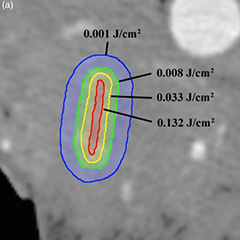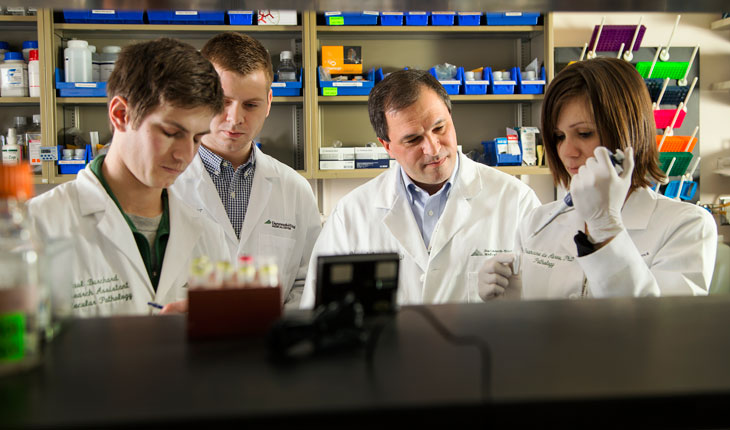Using CT scans with contrast enhancement, Dartmouth researchers measured treatment response to pancreatic cancerphotodynamic therapy (PDT) according to a paper published in Physics in Medicine and Biology.
Post Tagged with: "cancer"
Fast Food Giants’ Ads for Healthier Kids Meals Don’t Send the Right Message
Fast food giants attempts at depicting healthier kids’ meals frequently goes unnoticed by children ages 3 to 7 years old according to a new study by Dartmouth-Hitchcock Norris Cotton Cancer Center.
Researchers Issue Update on Genetic-based Testing and Treatment for Breast Cancer
Dartmouth researchers at its Norris Cotton Cancer Center have compiled a review of the role that information gathered through genetic testing plays in the diagnosis and treatment of breast cancer.
The Heretic in the Lab
An excerpt from the book The Truth in Small Doses discusses the research of Michael Sporn, a Geisel professor of pharmacology and toxicology, who has long advocated for an unorthodox approach to battling cancer.
Bedroom TVs and Youth Obesity
New Dartmouth study suggests removing the TV from a child’s bedroom could help prevent excessive weight gain.
Dartmouth Researchers Develop New Tool to Identify Genetic Risk Factors
Lebanon, NH—Dartmouth researchers developed a new biological pathway-based computational model, called the Pathway-based Human Phenotype Network (PHPN), to identify underlying genetic connections between different diseases as reported in BioDataMining; this week. The PHPN mines the data present in large publicly available disease datasets to find shared SNPs, genes, or pathways and […]
Researchers Developing New Approach for Imaging Dense Breasts for Abnormalities
Dartmouth engineers and radiologists are developing new approaches for an emerging technique in diagnostic imaging for breast cancer—MRI with near-infrared spectroscopy (NIRS).
Dartmouth Researchers Photograph Radiation Beams in the Human Body Through the Cherenkov Effect
A scientific breakthrough may give the field of radiation oncology new tools to increase the precision and safety of radiation treatment in cancer patients by helping doctors “see” the powerful beams of a linear accelerator as they enter or exit the body.
New Analysis Shows Fewer Years of Life Lost to Cancer
A new statistical approach to measuring the cancer burden in the United States reveals decades of progress in fighting cancer, progress previously masked by the falling death rates of other diseases.
Dartmouth Research: Coevolution Between Humans and Bacteria Reduces Gastric Cancer Risk
Research carried out in two distinct communities in Colombia illustrates how coevolution between humans and bacteria can affect a person’s risk of disease.




